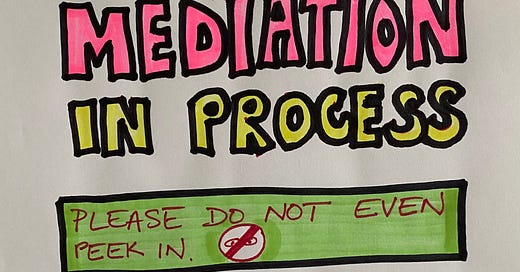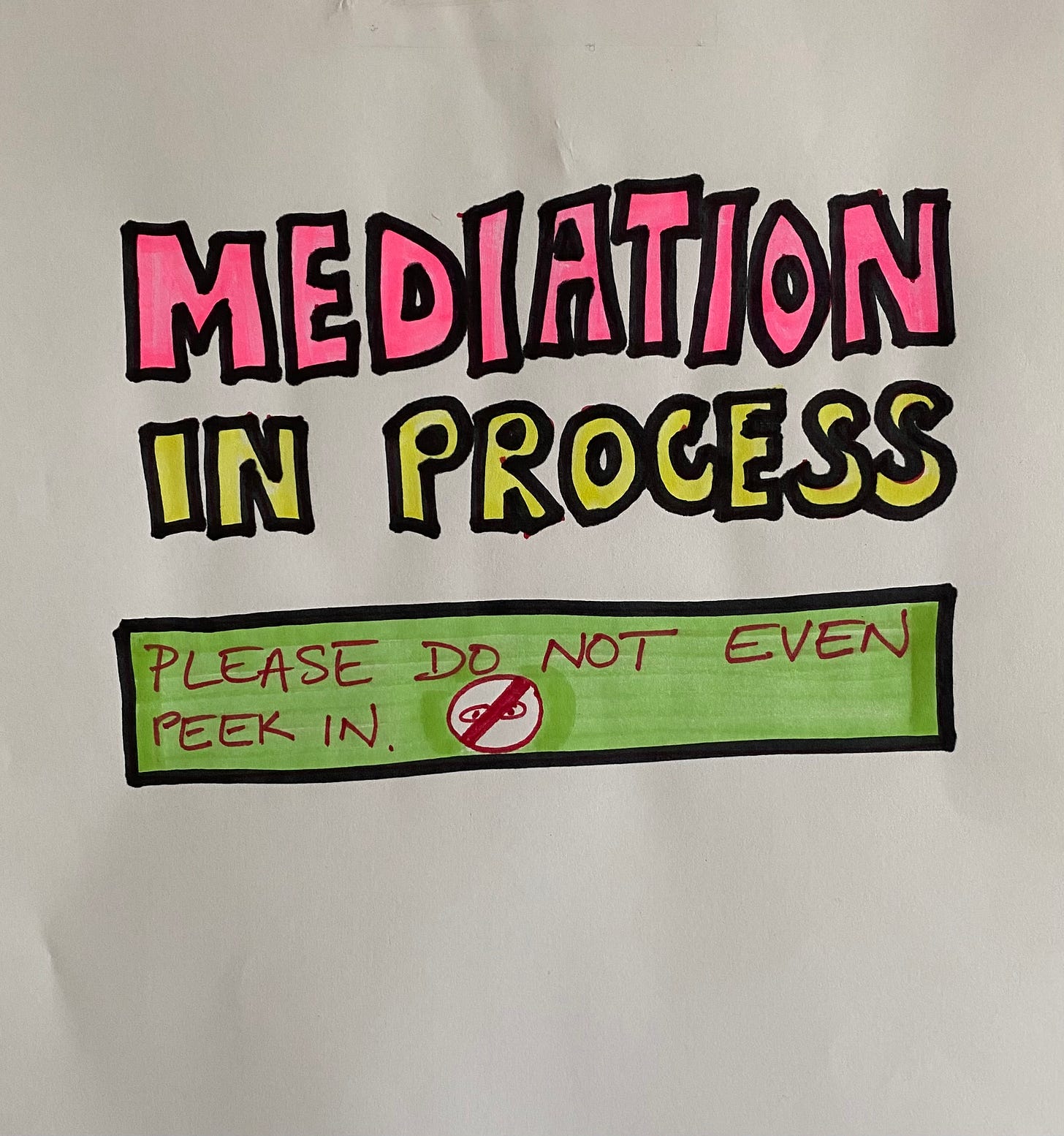Are You Zooming In—or Zooming Out?
Now that I’ve stepped back from running my company, I've returned to mediating—peacemaking on a miniature scale.
The Dispute Resolution Center (DRC) I’m affiliated with serves my entire county and handles a wide range of cases: parenting plans and asset division for divorcing couples, but also parent-youth conflicts, HOA and workplace disputes, landlord-tenant issues, and cases diverted from Small Claims Court.
It’ll take me another six months to re-certify as a full mediator. The process is appropriately rigorous, involving coursework, observations, mock sessions, and mentored mediations. I first became certified over a decade ago, but quickly realized, with small children and a big job, that the public service phase of my life would need to come later. (The DRC has a small paid staff, but most of the mediators are volunteers.)
I’m drawn to mediation work for the same reason I was drawn to corporate crisis management (my first career) and business building (my current career): the sheer intensity of it. I’ve always loved work that demands total concentration and triggers that blissful state known as flow.
Right now, mediation also works for me on a purely practical level: the commitment is case by case, so if I suddenly needed to return to the business trenches full-time, I could. It also fits with my family obligations, which spike and ebb in that deeply human, unpredictable way.
Lastly—and this is what I most want to explore with others who feel called to engage with this political moment—I like that mediation lets me zoom in and out.
By zooming in, I mean working at the most intimate scale, person to person—helping (on a good day, anyway) to repair and strengthen my community, one hairline fracture at a time.
By zooming out, I mean focusing on patterns that emerge across cases: economic insecurity, unemployment, substance abuse—the kinds of stressors, incidentally, that can make communities vulnerable to wannabe autocrats. To me, zooming out means asking what policies or programs might help and perhaps, in time, taking on new roles—in politics or advocacy—aimed at systemic change.
I don’t yet know whether I’ll eventually have to choose between zooming in and zooming out—or which path will make the most sense if I do. For now, sitting with real people working through real problems is as valuable an educational experience as I have ever had.
What about you? When you find yourself thinking “what now,” are you more inclined to zoom in—or zoom out? Why? Is it a personality thing? Is it a function of your own stresses and constraints? Or do you have a different framework entirely? I’d love to hear it.
Kate
Image: Many mediations are done in person but some, including those where the parties have a history of domestic violence, are done via Zoom. When I’m in a Zoom mediation in my home office, I put this sign on my door, so the kids don’t barge in. The first time, my daughter read it as “meditation in process” and, since I am the least chill person she knows, she was perplexed. For my part, I was like: I'm the one who got kicked out of a yoga class. Me meditating—as in ommm—for 5+ hours??? Do you not know me? Ah well—at least we know a good DRC where we can work through our misunderstandings.




